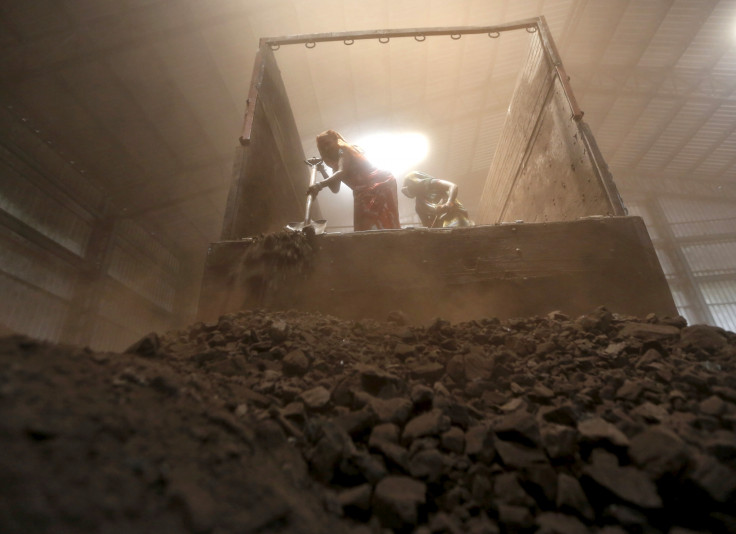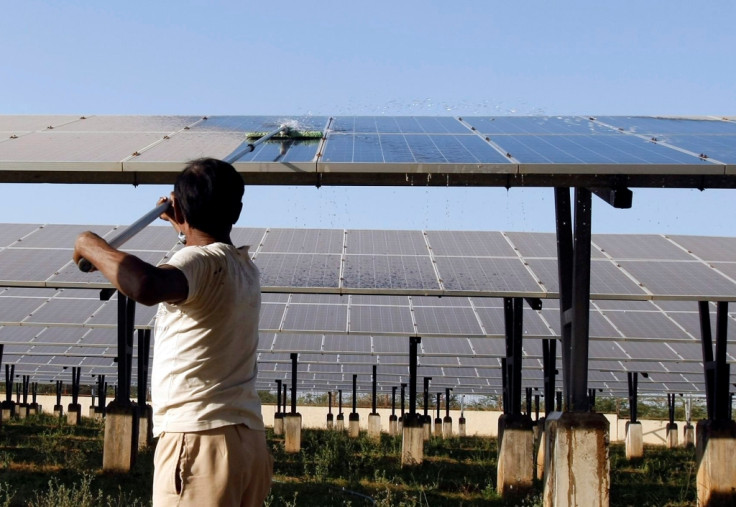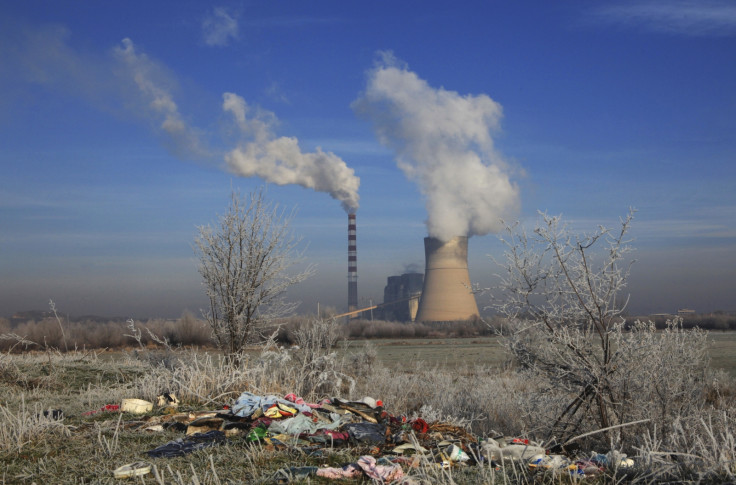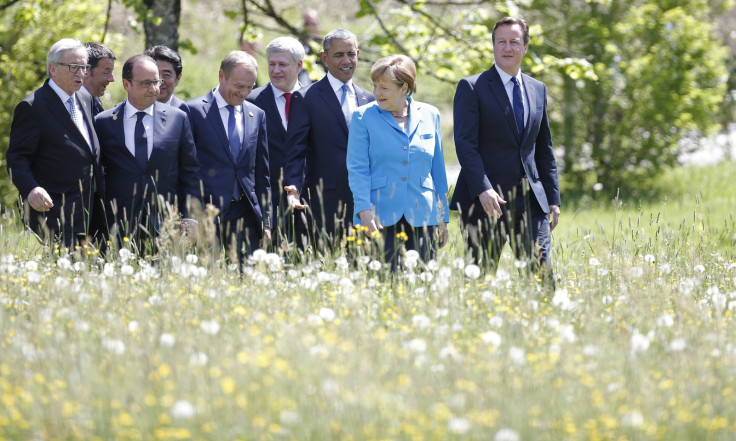Divest Invest: The philanthropy pledge on its way to COP 21 in Paris

A global divestment movement looking for companies to move away from fossil fuels and invest in a low carbon economy recently got its 100<sup>th signatory – with leaders hoping to double this number before the 2015 Paris Climate Conference in December.
Divest Invest Philanthropy was set up in the wake of the failed climate change talks in Copenhagen in 2009. Rather than asking companies for money, the movement looks for them to make a pledge to divest their portfolios of fossil fuels and invest in renewables and energy efficiency instead – to starve money from the fossil fuel industries and putting those funds into clean energy sources.
One of the key drivers of the movement is the emphasis on the financial incentives offered by renewables and energy efficiency, along with the obvious ethical implications of lowering emissions.
The falling costs of renewable energy together with increasingly costs of fossil fuels mean the financial arguments for the latter "no longer stack up", said Sian Ferguson, trust executive at the Sainsbury Family Charitable Trusts. The difficulty, she said, is convincing people in the business and financial sectors of the potential rewards.
"[Fossil fuel backers] will become increasingly isolated. When we begin to see really big investors like AXA and the Norwegian government making this commitment, it sends a very strong signal. The problem lies with there not being enough people in the business and financial sectors who really get what the financial implications of not acting are going to be."
The carbon bubble and its 'terrifying' implicatons
The divestment movement began to gain momentum in 2012 when US environmentalist and author Bill McKibben published an article in Rolling Stone, Global Warming's Terrifying New Math. In the piece, he pointed to the "carbon bubble" – first reported by Mark Campanale, founder of the Carbon Tracker Initiative.
The key point is we have to keep these fossil fuels in the ground and not burn them and the way to do that is to turn off investment in fossil fuels and turn on investment into renewables, energy efficiency and clean tech
The carbon bubble showed how most of the world's coal, oil and gas reserves are "stranded assets", as they cannot be burned if we are to keep global warming to within 2C by the end of the century. At present, scientists say that if emissions continue on their current course, we are looking closer to between 4C or 5C.
Ferguson explained: "Mark did an analysis of what the known reserves are for fossil fuel companies, what the carbon budget is and what the difference is. He came up with the figure that actually we need to keep two thirds of what we've got in the ground.
"The key point is we have to keep these fossil fuels in the ground and not burn them and the way to do that is to turn off investment in fossil fuels and turn on investment into renewables, energy efficiency and clean tech, etc."
Campanale set up Carbon Tracker shortly after leaving working in the city. He had noticed there were a lot of people raising money from coal, oil and gas at a time when the science of climate change was very much suggesting you "really wouldn't want to be investing in coal".

He said: "I just struck me that maybe markets are really misunderstanding this risk, so I had the idea that of taking the world's top 200 publicly traded coal and oil companies and looking at all the projects and adding up how much carbon dioxide would be sitting in the reserves. And if you do that you come up with a forecast of future emissions from these products."
He said that with a "systemic risk" such as climate change, fiscal thinking is needed. He said: "I think my view on the divestment movement is that it's incredibly important in getting traditional asset managers to wake up to an issue in a way they would never have done and force them to think about what they are doing."
Getting stuck with stranded assets
Asked if the divestment movement is an idealistic approach to solving the global warming problem, Jules Peck, strategic adviser in Europe for Divest Invest, said this is not the case. He said: "A lot of people will be cynical and say we need $28tn worth of funds shifted and this is a drop in the ocean. I think the response to that is that this is a vanguard. People didn't automatically get out of slavery all at once, people had to show the way, to show it was possible.
Effectively the music will stop playing and a lot of people will be left holding stranded assets unless they can't wake up to this
"In the same way this is a vanguard movement for the rest of the financial investment world, showing it's possible, that it won't hit the bottom line, also that it's the morally right thing to do."
He said people working in these sectors appear to not want to be the one that "blinks first" meaning they have become increasingly short term. Peck said: "Effectively the music will stop playing and a lot of people will be left holding stranded assets unless they can't wake up to this."
At present, Carbon Tracker is looking to make investors aware of a "fossil fuel risk premium" – the difference between the perceived risk in investing in renewables and the real risk posed by investment in fossil fuels.
Campanale explained: "If you look at the installed capacity globally for renewables vs fossil fuels, more renewable infrastructure is being built than fossil fuel infrastructure. And I think part of it is that a number of the companies are in denial. They're saying no there's always going to be demand for our products. To accept there is a diminishing demand for their... that would create a big difficulty."

He said there is a transition happening around the world in the energy sector – and that this is happening far faster than some investors and most of the fossil fuel industry believes. Indeed, he says there will be a rapid scaling up of renewables such as solar power in places like India and China, which will eat into the demand for coal in particular. "We think it's a transition game - and it's happening very fast," he added.
Paris and beyond
Ferguson believes that as politicians gear up to meet in Paris in December, the Divest Invest movement should make more ground, meaning politicians will be given something of a green light to agree to certain targets.
"It's not simply a moral crusade, this makes sense financially and people are starting to see [global warming] in their own lifetimes – and they're realising this is the moment to act," she said. "I don't think anybody who knows this can realistically say they should not act on this. Which leaders would want to be on the wrong side of history now?"
And with world leaders looking to make a deal at COP 21 – coupled with the support from the 100 signatories of Divest Invest Philanthropy – they are hopeful the business and financial sectors currently unwilling to focus on renewables and energy efficiency will come under increasing pressure to have a change of heart.
"Politicians need a clear mandate," Ferguson said. "I think unless they are comfortable and know they have permission to act in this way then they're not going to. So part of mission is making it clear they do have that mandate from not just the philanthropy sector but also from the financial and business sectors. It's clear there is unity around this and it gives politicians a safeguard to act."

Campanale added: "What investors have to decide is whether governments will not meet their targets, so when they say 'we'll reduce emissions' are they really saying they don't mean it?
"I've got high expectations for Paris in that it will be a series of internationally agreed targets to reduce emissions and that the effects of this will be to actually force the fossil fuel industry even further on to the back foot into rapid decline. We're going to see a continued shift in capital into renewables and away from fossil fuels. The shift is already happening."
The biggest challenge over the coming months and years will be to convince those involved that divestment in fossil fuels are the way forward. As the Divest Invest Philanthropy sets out the goal of getting 200 signatories by the time COP 21 comes around, Ferguson said the long-term goals stretch far beyond Paris in December.
She said: "Post 2016 and onwards will be continuing this work with increasing focus on investment, investment in the solutions. I think it's' about being on the right side of history.
"This is a time, a generation, where leaders can no longer say 'we didn't know, there was uncertainty'. It's not uncertain, the evidence is overwhelming, if we don't act on this you're letting down the rest of the world right now and generations to come."
© Copyright IBTimes 2025. All rights reserved.






















